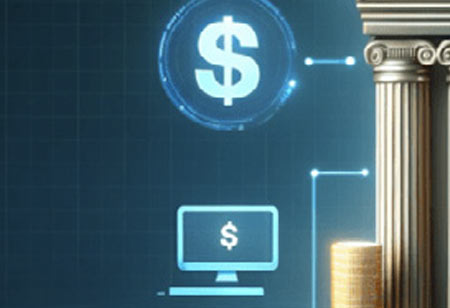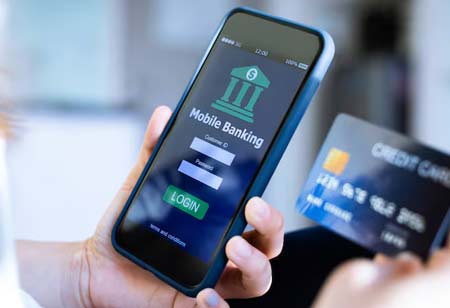THANK YOU FOR SUBSCRIBING

By
Banking CIO Outlook | Friday, June 09, 2023
Stay ahead of the industry with exclusive feature stories on the top companies, expert insights and the latest news delivered straight to your inbox. Subscribe today.
Current financial transactions likely arose from the need for a standardized method of verifying the identities of individuals and businesses, thereby fostering trust between parties.
FREMONT, CA: Blockchain technology offers novel approaches to resolving these issues with lending. DeFi, a radical new decentralized financial system, will be unlocked by blockchain technology, hailed as the next game-changer akin to the World Wide Web for Internet banking. The primary distinction between DeFi and conventional services is the "De" component, in which services exist in a decentralized manner without an intermediary. The peer-to-peer model could significantly alter the current state of financial services. The existence of peer-to-peer (P2P) financial transactions predates the evolution of banking in society.
A blockchain is a shared ledger by definition, and a shared ledger can be global in scope. The system delivering transactions' required replication and immutability requires geographically dispersed nodes not controlled by a single entity. It means global users can access DeFi applications operating on a worldwide network. It is a marketplace where participants can transact anytime, providing lenders access to a worldwide clientele and allowing them to explore new lending opportunities. DeFi applications aim to leverage these features to facilitate new types of financial transactions.
A secure, virtual, global network capable of crossing borders and regulatory regimes. Due to the online-only nature of transactions, the time required to make lending decisions is drastically reduced. Traditional methods of conducting due diligence, which can take weeks to complete, must be revised for this market. The financial services industry is accustomed to requiring service providers to register and adhere to local and regional regulations. The fact that financial service providers can extend their services beyond traditional geographic borders is positive, but compliance and regulatory requirements may increase exponentially.
The combination of Blockchain and DeFi will result in financial transactions involving a new class of digital assets. As the tokenization of goods and services in the "metaverse" environment expands, lending will introduce a new set of collateral that can be instantaneously authenticated and evaluated on the blockchain and thus used as collateral. A further Blockchain concept involving the maintenance of a digital "chain of custody" will aid in developing new collateral management techniques. The capability will necessitate a new approach to lending contracts.
Blockchain and DeFi leverage smart contracts that can incorporate a great deal of intelligence and measurement into the contract, enabling predetermined, automated actions based on the contract's size and terms. P2P transactions can only occur with the current safeguards of having trusted clearinghouses or many intermediaries. Blockchain technology is rapidly maturing into a viable platform poised to significantly change the financial services sector. Blockchain applications will continue to exist. From the perspective of the financial industry's future, it is prudent to comprehend and adapt to maintain market relevance.
THANK YOU FOR SUBSCRIBING
Be first to read the latest tech news, Industry Leader's Insights, and CIO interviews of medium and large enterprises exclusively from Banking CIO Outlook
I agree We use cookies on this website to enhance your user experience. By clicking any link on this page you are giving your consent for us to set cookies. More info



